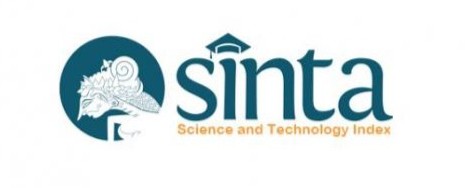Towards an Edupreneurial Indonesian Higher Education
A Culturepreneur Paradigm
Downloads
This paper explores the rise of edupreneurial culturepreneurship within Indonesian higher education institutions (HEIs), where students and faculty transform cultural production into entrepreneurial ventures, and intertwine entrepreneurial motivation with cultural a/effect. Drawing on publicly available data—university programs, national student entrepreneurship schemes, and online cultural initiatives—this study maps how Indonesian HEIs serve as incubators for creative economic activity. Case studies include Ritus Liyan initiative, ISI Yogyakarta’s art commercialization programs, and Universitas Ciputra’s entrepreneurial mindset. Findings reveal both opportunities and tensions in merging artistic expression with business models. The growing acknowledgement of entrepreneurial significance in multidisciplinary level, however, is not properly manifested with echo of Cultural (with big C) sensitivity. “Culture” serves as a paradigmatic underpinning that reminds entrepreneurs to go beyond numerical and/or quantitative profit as the sole indicator of success. Thus, this study contributes a framework for understanding universities as agents of cultural innovation in Indonesia’s evolving creative economy landscape and critiquing the semantic banality of the term ‘Entrepreneurship’.
Bourdieu, P. (1977). Outline of a theory of practice (Issue 16). Cambridge University Press.
Bowler Jr, G. M. (2010). Netnography: A method specifically designed to study cultures and communities online. The Qualitative Report, 15(5), 1270–1275.
Bridge, S., Hegarty, C., & Porter, S. (2010). Rediscovering enterprise: Developing appropriate university entrepreneurship education. Education + Training, 52(8/9), 722–734. https://doi.org/10.1108/00400911011089084
Chiapello, E. (2017). Critical sociology of culture: An introduction. In J. R. Hall, L. Grindstaff, & M.-C. Lo (Eds.), Handbook of cultural sociology (2nd ed., pp. 445–453). Routledge.
Chorev, N., & Ball, A. (2022). The knowledge-based economy and the Global South. Annual Review of Sociology. https://api.semanticscholar.org/CorpusID:248310801
Clark, B. R. (1998). Creating entrepreneurial universities: Organizational pathways of transformation. Pergamon Press.
Creswell, J. W. (2013). Qualitative inquiry and research design: Choosing among five approaches (3rd ed.). SAGE Publications.
Dhewanto, W., Prasetyo, M. B., Herliana, S., & Ardi, R. (2018). Entrepreneurship education in Indonesian universities: A country-wide examination. International Journal of Business and Society, 19(S3), 353–370.
Dobreva, N., & Ivanov, S. H. (2020). Cultural entrepreneurship: A review of the literature. Tourism & Management Studies, 16(4), 23–34.
Fayolle, A., & Gailly, B. (2008). From craft to science: Teaching models and learning processes in entrepreneurship education. Journal of European Industrial Training, 32(7), 569–593. https://doi.org/10.1108/03090590810899838
Gielen, P., & Lijster, T. (2015). Culture: The substructure for a European common. In P. Gielen (Ed.), No culture, no Europe: On the foundation of politics (pp. 9–21). Valiz.
Hassan, N. A. (2024). University business incubators as a tool for accelerating entrepreneurship: Theoretical perspective. Review of Economics and Political Science, 9(5), 434–453.
Keane, M. (2016). Creative industries in China: Art, design and media. Polity Press.
Keat, O. Y., & Ahmad, S. (2012). A study among university students in business start-ups in Malaysia: Motivations and obstacles to become entrepreneurs. International Journal of Business and Social Science, 3(19), 181–192.
Kemenparekraf. (2022). 17 Subsektor Ekonomi Kreatif. Kementerian Pariwisata dan Ekonomi Kreatif Republik Indonesia. https://kemenparekraf.go.id
Kemendikbudristek. (2020). Panduan Merdeka Belajar – Kampus Merdeka. Kementerian Pendidikan, Kebudayaan, Riset, dan Teknologi. https://www.kemdikbud.go.id
Komara, B. D., & Setiawan, H. C. B. (2020). Inkubator bisnis sebagai pendorong tumbuhnya wirausaha muda: Studi tentang suksesi kewirausahaan mahasiswa Universitas Muhammadiyah Gresik. Jurnal Riset Entrepreneurship, 3(1), 33–39.
Kong, L. (2014). Transnational mobilities and the making of creative cities. Theory, Culture & Society, 31(7–8), 273–289. https://doi.org/10.1177/0263276414549293
lina. (n.d.). Program wirausaha bagi mahasiswa FSRD ISI Yogyakarta. Fakultas Seni Rupa | ISI Yogyakarta. Retrieved June 23, 2025, from https://fsrd.isi.ac.id/2024/08/26/program-wirausaha-bagi-mahasiswa-fsrd-isi-yogyakarta/
Loaney, D. R. (2019). Australian Indigenous art innovation and culturepreneurship in practice: Insights for cultural tourism. Journal of Tourism & Cultural Change, 8(2), 50.
Longhurst, B., Smith, G., Bagnall, G., Crawford, G., Ogborn, M., Baldwin, E., & McCracken, S. (2008). Introducing cultural studies. Pearson.
Mignolo, W. D., & Vázquez, R. (2013). Decolonial aesthetics: From the coloniality of power to the decoloniality of being. Social Text, 31(3), 1–20.
Ndofirepi, T. M., & Rambe, P. (2017). A framework for incorporating critical thinking into entrepreneurship education curricula in Zimbabwean universities. Academy of Entrepreneurship Journal, 23(2), 1–21.
O’Connor, J., & Gu, X. (2020). Red creative: Culture and modernity in China. Intellect Books.
Pinheiro, R., Benneworth, P., & Jones, G. A. (2012). Universities and regional development: A critical assessment of tensions and contradictions. Routledge.
Priatama, R. A., Rustiadi, E., & Pravitasari, A. E. (2022). Physical geographical factors leading to the disparity of regional development: The case study of Java Island. The Indonesian Journal of Geography, 54(2), 195–205.
Ramli, R. (2024). Inkubator bisnis sebagai strategi pengembangan ekosistem kewirausahaan di perguruan tinggi. Jurnal Manajemen dan Kewirausahaan (JUMAWA), 2(1), 1–8.
Ratnaningtyas, Y. A., & Purwanto, T. S. (2024). The role of art conservation in preserving the cultural value of seven busts in the plaza of the Faculty of Fine Arts, ISI Yogyakarta. ETNOSIA: Jurnal Etnografi Indonesia. https://api.semanticscholar.org/CorpusID:275122635
Rukmana, A. Y., Meltareza, R., Harto, B., Komalasari, O., & Harnani, N. (2023). Optimizing the role of business incubators in higher education: A review of supporting factors and barriers. West Science Business and Management, 1(03), 169–175.
Turner, G. (2021). John Fiske and the building of cultural studies. International Journal of Cultural Studies, 25, 3–13.
Turner, V. (1969). The ritual process: Structure and anti-structure. Aldine Transaction.
unairnews. (2024, March 21). Lokakarya Ritus Liyan ajak perhatikan kebiasaan remeh untuk hasilkan karya. Universitas Airlangga Official Website. https://unair.ac.id/lokakarya-ritus-liyan-ajak-perhatikan-kebiasaan-remeh-untuk-hasilkan-karya/
Utomo, A., & Anindita, R. (2020). Uneven innovation geographies and creative economies in post-reformasi Indonesia. Journal of Southeast Asian Studies, 51(1), 83–104. https://doi.org/10.1017/S0022463419000601
Wilson, N., & Stokes, D. (2005). Managing creativity and innovation: The challenge for cultural entrepreneurs. Journal of Small Business and Enterprise Development, 12(3), 366–378. https://doi.org/10.1108/14626000510612294

LAKON by Unair is licensed under a Creative Commons Attribution-NonCommercial-ShareAlike 4.0 International License.
1. The journal allows the author to hold the copyright of the article without restrictions.
2. The journal allows the author(s) to retain publishing rights without restrictions
3. The legal formal aspect of journal publication accessibility refers to Creative Commons Attribution-NonCommercial-ShareAlike (CC BY-NC-SA).


.png)













